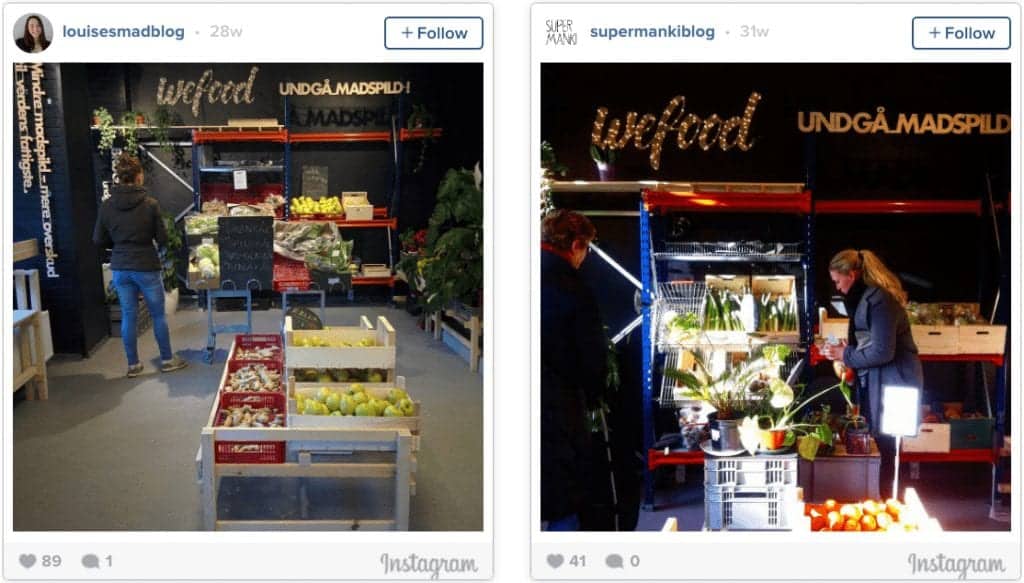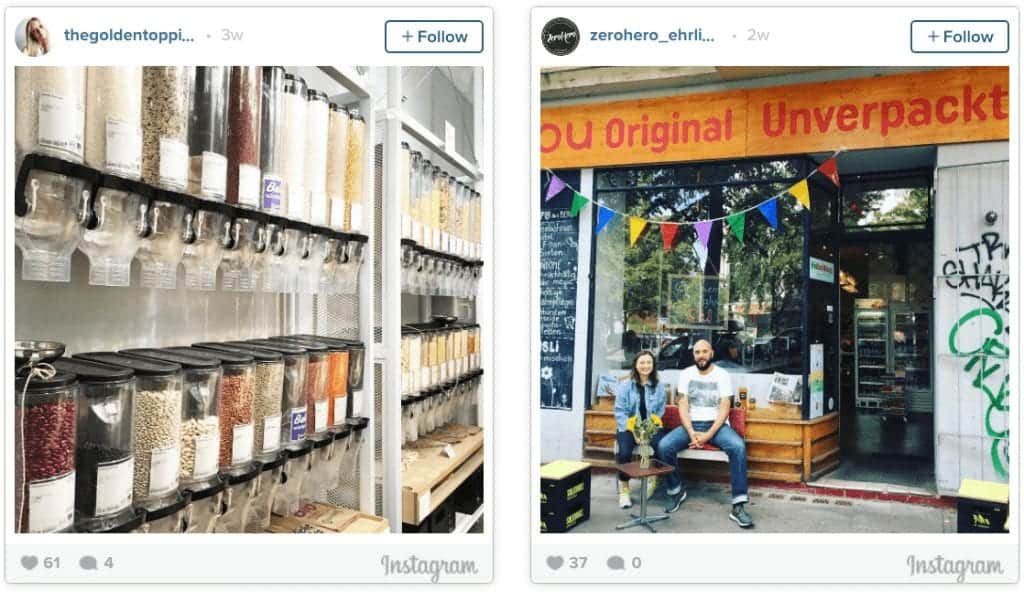Around the world, a new wave of low-impact, ethical supermarkets are ripping up the rulebook, encouraging us to rethink how we consume products and engage with our local public spaces.
The pioneers behind these grassroots enterprises are seeking a new economic model, one that champions community, embraces the environment and swaps mindless consumerism for kindness and compassion.
You won’t get any wastage, high food miles, unethical practices, plastic bags or tills nagging about ‘unexpected items in bagging areas,’ here.
Pay-as-you-feel
British supermarkets throw away at least 115,000 tonnes of perfectly good food every year, while more than 8 million people struggle to put food on the table. Tackling this shameful paradox is the Real Junk Food Project. For the last 4 years, they’ve been making sure food gets into the hands of the hungry, rather than the bottom of the bin.
After launching a network of volunteer-led, pay-as-you-feel cafes, they’ve now expanded their surplus-saving model to the shop floor, opening one of the first food waste ethical supermarkets, in a warehouse in Leeds. Although the ‘anti-supermarket’ principally helps those on low incomes, they believe it should be available for everyone.
“We don’t stigmatise anybody,” says the project’s founder Adam Smith. “We have an inclusive environment for anybody who wants to come in. Because what we’re offering is a human right.”
Danish supermarket, Wefood is providing a similar service. They have been selling donated surplus items 30 to 50 percent cheaper than normal supermarkets. Since opening in January of this year, it has proved to be a huge success, capturing the hearts, minds and mouths of the Danish public. They even plan to open two more stores very soon.
“Many people see this as a positive and politically correct way to approach the issue of food waste,” says Per Bjerre, the man behind the operation.

Bring your own
If the recent plastic bag charge in the UK is anything to go by (usage has dropped by more than 85%) it reveals that significant shifts in consumer behaviour, en masse. are possible.
In Berlin, crowdfunded zero waste supermarket Original Unverpackt are taking things to the next level. Everything they stock – from soap, wine, pasta, toothpaste, etc – is sold in large containers. Shoppers are encouraged to eschew unnecessary packaging by filling their own reusable jars and tote bags.

Day-by-Day, a small chain of stores in France, have also pursued this bulk-buying, ‘pre-cycling’ model – eliminating waste before it’s even been created, and Brooklyn-based, The Fillery, promises groceries that are ‘good for the pantry and planet’.
“Our main objective is to reduce packaging and food waste,” says The Fillery founder, Sara Metz. “We want to provide our community, not just with the tools to live more sustainably and more healthily, but also the understanding of how to do so effectively”









